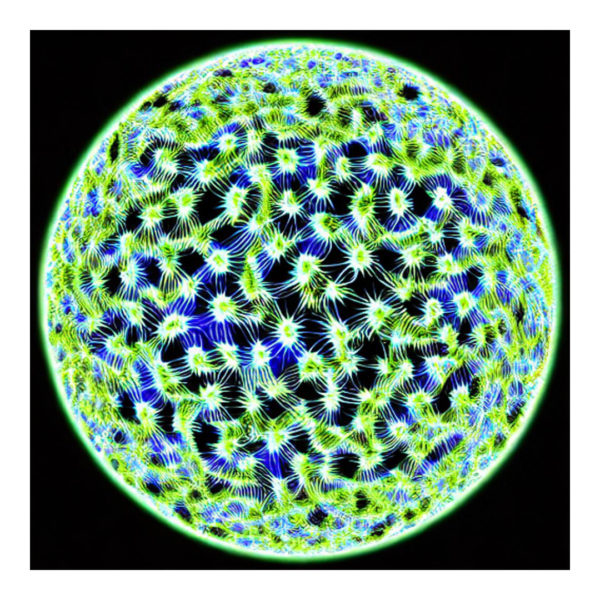Organoid intelligence: brains acting as computers

While for long in neuroscience, computers were used to model brain function, organoid intelligence, a new scientific field, aims to do the opposite by developing biological computers which would benefit from the efficiency of our most complex biological machine: the brain.
Fear not. The objective is not to connect humans by their brains to power some sort of mega computer, but to use brains grown in a dish (brain organoids). These organoids are 3D structures developed from reprogrammed skin cells in the lab and which would become the organic support of these future computers.
Despite the capacity of silicon-based computers to perform big calculations, they are not as good when it comes to connecting unrelated pieces of information. In addition, our brains are a much more efficient machine, requiring much less energy to produce the required answer. Finally, our brains hold an amazing data storage capacity: around 2,500 TB in just about 1.5 kg.
It is obvious that organoid intelligence can offer a number of advantages to current computers: higher computing speed, processing power, and energy efficiency as well as data storage capacity. But in addition, it could also help us understand brain development, learning, and memory while helping in the clinical development of treatments for neurological and neurodegenerative diseases, which is already an ongoing process.
However, if this sounds as science fiction is because although the proof-of-concept is already available (a group of neurons on a dish was shown to play the computer game Pong), a lot of work is needed to optimise organoid culture (increase their size and include supporting glial cell populations, ensure organoid maintenance through microfluidics…) and to develop the appropriate functional measurement and information transfer methods (imagine an EEG cap that records brain activity, or chemical signals to induce cell responses). In addition, to “teach” the organoid and “examine” its progress, new tools are needed that will require use of machine learning and other complex methods.
If you are interested in the topic, I recommend checking the hub article on the topic published in Frontiers in Science, a new journal dedicated to divulge new, critical topics at all levels, including a lay summary and a version for children.
1 comment
As suggested in the Frontiers in Science article, this is an area of study that promises to be highly controversial in terms of ethical implications. The fact that the basic material for brain organoids comes from human brain cells is almost a guarantee that it will meet with fierce opposition from part of society. I would advise explaining to the public in simple and understandable terms what the mechanism of operation is and what we can expect from these organoid intelligences once they are fully developed.